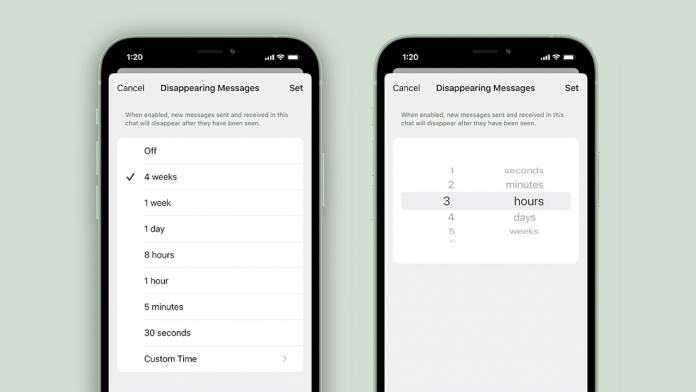
Signal may not be as ubiquitous as WhatsApp or Messenger but it’s a pretty popular messaging app for those who value things like end-to-end encryption and privacy. They already have a disappearing messages feature for some time now but you had to turn it on for every conversation you have. Now they’re letting users choose this option as the default for all of their chats on the platform. They’re also adding a few more options for how long (or short) the messages should disappear.
End-to-end encryption is already great for your privacy but disappearing messages adds an extra layer of privacy to your conversations. It can also be used to keep your inbox “clean” or to save up on your device’s storage space. Signal reminds users that the feature cannot totally make your messages disappear as the receiver can screenshot it to keep a record of your conversation. So maybe you should use the feature for those other reasons mentioned.
Previously, you had to toggle the option for disappearing messages for each individual conversation and choose the interval as well. Now you will be able to turn on a default timer and it will apply to newly initiated conversations. It should be able to delete the chats for the sender and the receiver after the time you set has passed. While there are some messages that you’d probably like to keep, at least you have the option now to make all messages in all chats disappear.
You also now have more custom timer durations to choose from, like 60 seconds, 18 minutes, or as long as 4 weeks. You can actually make it as short as 1 second in the custom time options, although would you be able to actually read something in 1 second? In any case, you could play around with that custom timer if you’re doing some message tag games on the app. Signal says these new options should roll out to all users.
While it’s not as popular as the 2 billion user-strong WhatsApp, Signal was actually able to get a bulk of those users that left the Facebook-owned messaging app because of its new privacy policy. Signal currently has around 20 million monthly active users.









